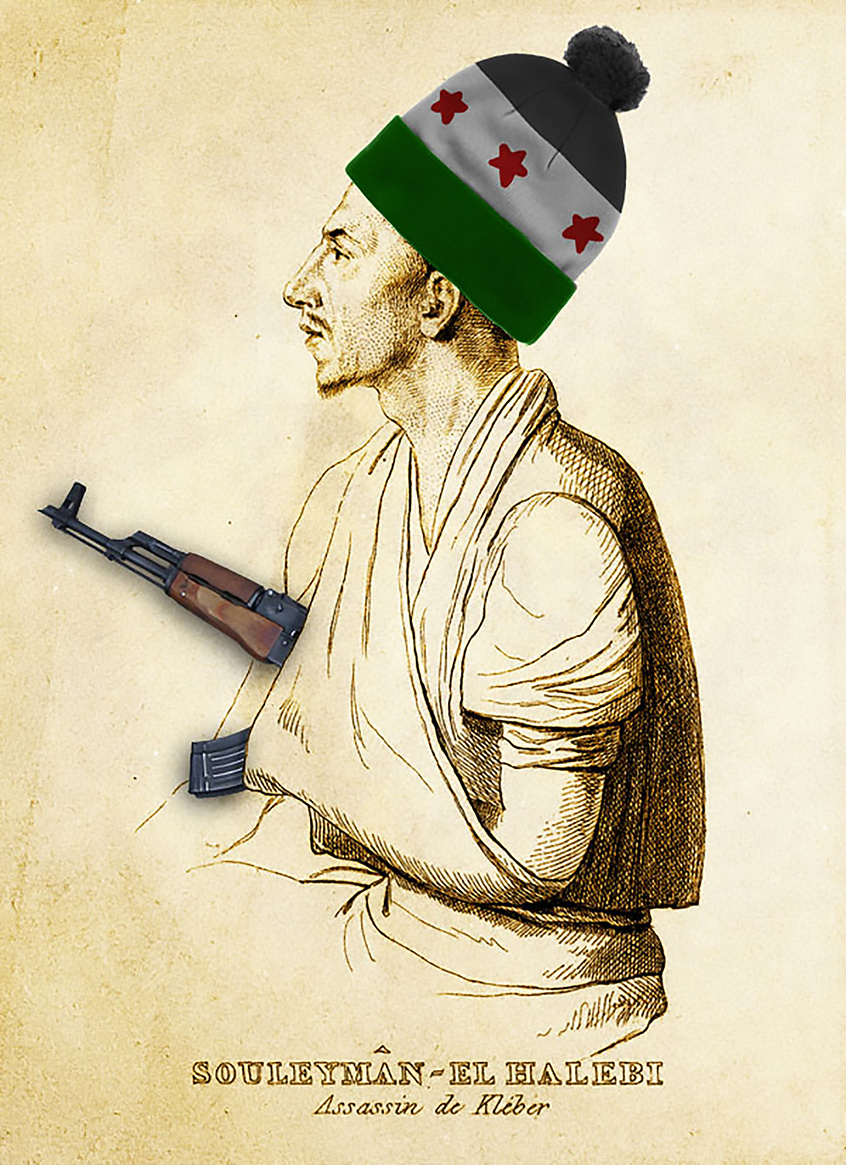
Something is rotten in the state of the media. Rotten to the point that today a man accused of war crimes can summon mainstream media to announce that reality has debunked their narrative, delighting in advance over the impact his criticism will have when it is relayed by the world’s screens.
It’s true that our criminal is well spoken, with the allure of a gentleman, even in comparison to an American president who insults the media in front of the CIA. But is that a reason not to apply to him the principle of caution that is applied to other brutes like him? Why not treat him more like we treat Vogue or Allure, the cigarette brands recently banned in Europe on the grounds that their packaging misleads consumers by wrongly implying benefits?
These questions have never been asked since March 2011, the date that our criminal declared war on the Syrians he described as germs. At the time, there were ongoing attempts to find ways to keep the public informed despite a countrywide media blackout imposed by the regime in Damascus. But the mainstream media did not provide the necessary means to cover the situation, despite the fact that they had in the past done so for people under existential threat—during the siege of Sarajevo, for example, from 1992–95. Instead they aligned themselves with social media by cobbling together a dubious information apparatus that privileged immersion at the expense of perspective, compassion to the detriment of intelligence, and spectacle in contempt of human dignity. The result: scorning the dignity of victims they were supposed to defend, granting legitimacy to a criminal they were supposed to denounce, and banalizing evil just as during the time the sub-humans were finished off to the indifference of the world.
How can we leave this generalized state of abjection? We have personally tried to denounce, to analyze, to propose. But it’s no use.
Something is very rotten in the state of the media. And if nothing can be done to remedy it, we will end up losing a key counter power against the post-truth that undermines the foundation of our shared world in Damascus, Washington, and elsewhere.

